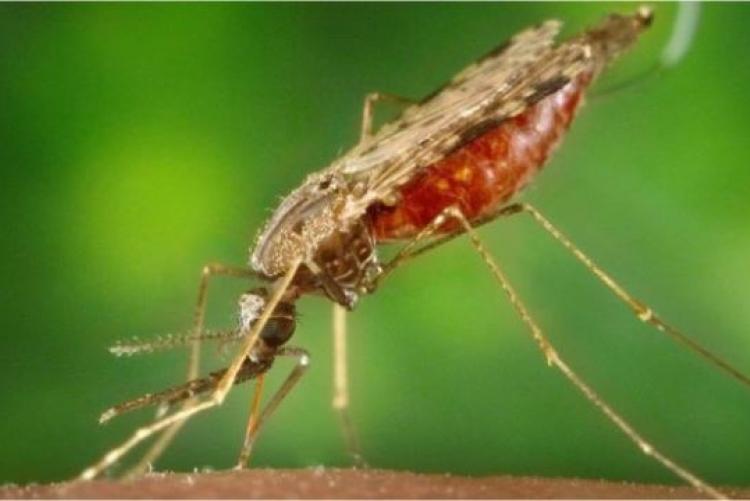Kenya Scientists and the UK Scientists have discovered a microbe that completely protects mosquitoes from being infected with malaria.
The team in Kenya and the UK say the finding has "enormous potential" to control the disease.Malaria is spread by the bite of infected mosquitoes, so protecting them could in turn protect people. The researchers are now investigating whether they can release infected mosquitoes into the wild, or use spores to suppress the disease.
What is this microbe?
The malaria-blocking bug, Microsporidia MB, was discovered by studying mosquitoes on the shores of Lake Victoria in Kenya. It lives in the gut and genitals of the insects.The researchers could not find a single mosquito carrying the Microsporidia that was harbouring the malaria parasite. And lab experiments, published in Nature Communications, confirmed the microbe gave the mosquitoes protection.Microsporidias are fungi, or at least closely related to them, and most are parasites.However, this new species may be beneficial to the mosquito and was naturally found in around 5% of the insects studied.
How big a discovery is it?
"The data we have so far suggest it is 100% blockage, it's a very severe blockage of malaria," Dr Jeremy Herren, from the International Centre of Insect Physiology and Ecology (icipe) in Kenya told the BBC.He added: "It will come as a quite a surprise. I think people will find that a real big breakthrough." More than 400,000 people are killed by malaria each year, most of them children under the age of five.While huge progress has been made through the use of bed nets and spraying homes with insecticide, this has stalled in recent years. It is widely agreed new tools are needed to tackle malaria.
How does the microbe stop malaria? Kindly visit https://www.bbc.com/news/health-52530828?ocid=wsnews.chat-apps.in-app-msg.whatsapp.trial.link1_.auin
Kenya Scientists and the UK Scientists have discovered a microbe that completely protects mosquitoes from being infected with malaria.
The team in Kenya and the UK say the finding has "enormous potential" to control the disease.Malaria is spread by the bite of infected mosquitoes, so protecting them could in turn protect people. The researchers are now investigating whether they can release infected mosquitoes into the wild, or use spores to suppress the disease.
What is this microbe?
The malaria-blocking bug, Microsporidia MB, was discovered by studying mosquitoes on the shores of Lake Victoria in Kenya. It lives in the gut and genitals of the insects.The researchers could not find a single mosquito carrying the Microsporidia that was harbouring the malaria parasite. And lab experiments, published in Nature Communications, confirmed the microbe gave the mosquitoes protection.Microsporidias are fungi, or at least closely related to them, and most are parasites.However, this new species may be beneficial to the mosquito and was naturally found in around 5% of the insects studied.
How big a discovery is it?
"The data we have so far suggest it is 100% blockage, it's a very severe blockage of malaria," Dr Jeremy Herren, from the International Centre of Insect Physiology and Ecology (icipe) in Kenya told the BBC.He added: "It will come as a quite a surprise. I think people will find that a real big breakthrough." More than 400,000 people are killed by malaria each year, most of them children under the age of five.While huge progress has been made through the use of bed nets and spraying homes with insecticide, this has stalled in recent years. It is widely agreed new tools are needed to tackle malaria.
How does the microbe stop malaria? Kindly visit https://www.bbc.com/news/health-52530828?ocid=wsnews.chat-apps.in-app-msg.whatsapp.trial.link1_.auin
- Log in to post comments

